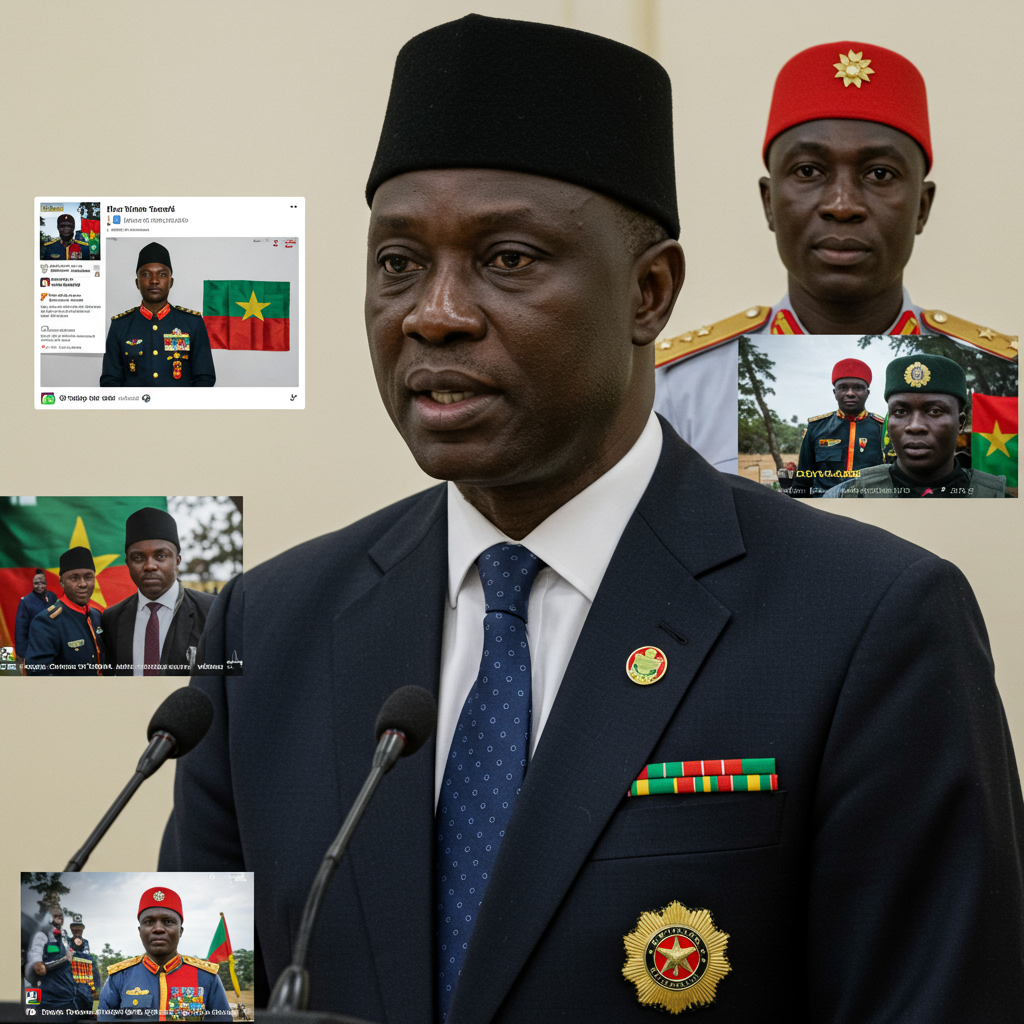Across West Africa’s Sahel region, a pervasive online information war is underway, marked by a torrent of viral videos, memes, and social media posts lionizing military regimes in countries like Burkina Faso, Mali, and Niger. This digital blitz is no accident; experts point to a calculated campaign designed to elevate the standing of these junta leaders.
A central figure in this propaganda push is Captain Ibrahim Traoré of Burkina Faso. At 37, he’s the continent’s youngest leader, having seized power in a 2022 coup. His presence online is described by observers as unprecedented – appearing “everywhere, all the time” and often hailed as a “young king of Africa.” However, much of this content is fabricated, employing cheap, cartoonish artificial intelligence (AI) generated videos and falsely attributing achievements to his leadership.
Investigative journalists reveal that these campaigns are often orchestrated by third parties. Examples of deceptive content include presenting a large high-rise housing project located in Algeria as if it were being built in Burkina Faso, or circulating videos of Traoré at a cement plant inauguration with false claims of announced price drops. While some of this fakery is easily disproven, the sheer volume creates a powerful, if misleading, narrative of progress and strong leadership.
Instability Creates Fertile Ground for Disinformation
This surge in pro-junta propaganda coincides with a period of significant instability in the region. Following the coups in Burkina Faso, Mali, and Niger – countries that have since broken away from the regional bloc ECOWAS to form their own Alliance of Sahel States – violent extremist organizations linked to al-Qaida and the Islamic State group have drastically expanded their operations. Burkina Faso alone has seen terrorist attacks nearly triple since the 2022 coup, displacing over 2 million people.
This deteriorating security landscape and unstable governance create an environment ripe for foreign information operations. In nations where military juntas already restrict speech and dissent, pro-Russian sentiment and anti-imperialist rhetoric find fertile ground, helping to shift public opinion in favor of external actors like Russia.
Russia’s Strategy: Exploiting the Digital Divide
Russia has become a primary source of disinformation across Africa, leveraging the continent’s rapidly growing reliance on social media for news. With hundreds of millions of Africans joining social media in recent years and over 600 million internet users, inadequate traditional media infrastructure has created what experts term “information poverty.” This makes large segments of the population vulnerable to misinformation spread online.
Moscow’s “African Initiative” news agency is a key vehicle for this effort, disseminating fake news and false information through various digital channels, including social media accounts, websites like afrinz.ru, VKontakte, and Telegram channels. Content is produced by “Russian propaganda units” and distributed to influencers via middlemen to maximize reach.
Analysis reveals a significant surge in disinformation campaigns targeting African information systems, with a nearly fourfold increase since 2022. Russia stands out as the leading state sponsor, responsible for a substantial percentage of these documented campaigns across numerous countries. These foreign state-sponsored efforts often dominate the disinformation landscape, particularly in countries experiencing conflict, where campaign levels are significantly higher.
Motivations and Ironies
Russia’s motivations are multifaceted. Its disinformation campaigns aim to undermine Western influence, support self-serving ruling parties, and capitalize on existing anti-Western and anti-colonial sentiments. Figures like Captain Traoré effectively tap into a broader disillusionment with Western-style democracy and a desire for leaders perceived as breaking free from perceived neo-colonialism, drawing comparisons to revolutionary figures like Thomas Sankara. Traoré’s anti-imperialist stance, notably highlighted in a speech at the 2023 Russia-Africa summit where he urged leaders to “stop behaving like puppets,” resonates deeply with many Africans questioning their relationship with former colonial powers and the persistence of poverty.
Yet, there is a striking irony in Russia promoting anti-colonial narratives while simultaneously embedding operatives and paramilitary groups, such as those linked to the now-defunct Wagner Group, in African countries to secure economic interests. Russia has significantly profited from resource extraction in the region; estimates suggest it has siphoned billions from gold mining alone since 2022. This economic exploitation stands in stark contrast to the anti-imperialist rhetoric used to gain favor with the juntas and local populations.
Wider Impact and the Path Ahead
The effects of these disinformation campaigns extend beyond the directly targeted nations. The growing admiration for figures like Traoré in neighboring countries poses risks to national security and democratic stability by normalizing military intervention as a viable political path and inviting further foreign ideological interference.
Combating this disinformation is challenging. Social media platforms often lack sufficient local language moderation, and concerningly, local actors are now emulating Russian disinformation tactics for their own political purposes. Russia also employs a “franchising strategy,” outsourcing content creation to locals, making it harder to detect and more linguistically accurate.
Experts caution that Sahelian countries are on a precarious trajectory. Without a genuine focus on long-term stability over short-term geopolitical maneuvering, the cycle of external interference and internal turmoil is likely to persist, trapping the region in a struggle that compromises its future and undermines democratic progress and human rights.
References
- https://adf-magazine.com/2025/05/russia-using-false-information-to-prop-up-junta-regimes/
- https://africacenter.org/spotlight/mapping-a-surge-of-disinformation-in-africa/
- https://www.bbc.com/news/articles/c1egely9v3go
- https://www.cigionline.org/articles/russian-disinformation-is-taking-hold-in-africa/
- https://www.brookings.edu/articles/the-assad-regime-falls-what-happens-now/



